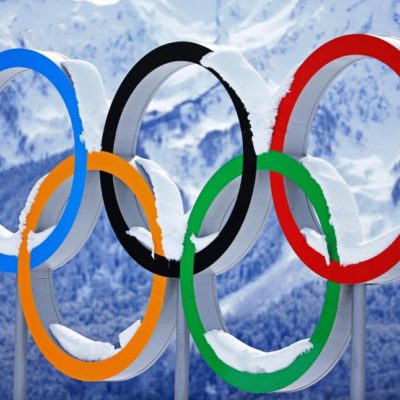So there I sat on Thursday, at home, watching Calgary Snowpocalypse 2018 unfold all around me. We have received at last count about 35 to 50 cm of snow in the last 24 hours. In non-metric speak, that is about 12 to 18 inches. Part and parcel of that is a snow day, because driving in these conditions can at best be described as white knuckled terror. Of course as we all know, it’s not the driving so much as the drivers.
Anyway, there I sat, wondering if I should go to the well one last time on this whole BC government, Trans Mountain Pipeline, Alberta, Federal government fiasco. And, much as I would like to move on, I truly feel like I needed closure on this. So, hopefully for the last time (until the next time) on this…
On Tuesday this week, the Alberta government struck back at BC, banning the importation of BC wines into Alberta. This was easy because all liquor into the province comes in via the Alberta Gaming and Liquor Commission. Now, much hot air and humour has been made of this, since the wine industry trade is estimated to be only about $70 million versus the $1.5 billion number being tossed around about the oil potential being shunned by BC. But I think that misses the point. The import ban is purely symbolic. The wine industry is important to BC. And the BC government is proposing something which will deliberately hurt the Alberta and national economy so to get someone, anyone, to pay attention, any riposte needed to hit an industry with profile.
Let me be the first to say, Albertan’s like wine. And we like BC wine. A lot. What we don’t like is having landlocked resources and their potential export being constantly blocked and delayed and befuddled by a government intent on staying in power and thumbing their nose at the paramountcy of the Federal government and the rules of interprovincial trade and transport.
Another thing we don’t like is a federal government that seems content to issue platitudes and sit back and watch two provinces fight it out over something that is clearly federal responsibility.
So Rachel Notley upped the ante then called Horgan’s bluff. She served notice that Alberta can be as much a pain in the butt, juvenile, petty and sneaky as the BC government. And we will keep doing it until the Federal government, in the person of one Justin Trudeau, figures out he needs to step up and step in and end this POLITICAL battle once and for all. He can’t tell BC to stop doing what they are doing, but he can tell Canadians, Alberta, Kinder Morgan and the energy sector that it won’t work and he has their back – carry on with the build.
Meanwhile, the existing line keeps shipping oil and refined products into BC via the TransMountain Pipeline, in active service since 1953 (and ironically built as an export pipeline in the first place), and refining in Burnaby and shipping jet fuel to the Vancouver International Airport without disruption, servicing the fuel needs of the greater Lower Mainland and much of the interior.
Look, I get why having a big pipeline and export facility in the Burrard Inlet sticks in people’s craw, but you (BC) won’t let it go anywhere else. If Northern Gateway had gone ahead, this project may very well have been shelved for a decade or so. But it didn’t because the Fed changed those rules and this is what the end result is.
Don’t get mad at Alberta for trying to get the Federal government’s attention. This pipeline is in the national interest, has been approved and is needed. No matter where its terminus might be. You can’t eat your cake and have it too.
Phew! That felt good.
Now, down to the matter at hand.
If you were paying attention during the Super Bowl… Wait, I need to say something here about the Super Bowl. I picked New England and waxed poetic about the GOAT and how great he and Belichick were. And I was mostly right, Tom Brady was magnificent, even in defeat. He’s 40 and he threw for 500 yards and almost sealed the deal. But the other half of the greatness equation let him down. The fabulous Bill had no answer on defense for a truly talented Philadelphia team that had a great game plan, perfectly executed, abetted by a New England defence that appeared to have no plan whatsoever. Bill, I don’t know why Malcolm Butler was benched, but he won you a Super Bowl three years ago – I know, I was there – playing exactly the aggressive physical defence that was so obviously lacking in this game. I think it’s safe to say, the coaches didn’t do enough to win.
Anyway, enough of that. If you were paying attention, you know that the Winter Olympics start today in PyeongChang South Korea, a mere 40 miles away from Donald Trump’s Hermit Kingdom, sorry Kim Jong Un’s Hermit Kingdom. We wish all of the athletes great fortune in their pursuits.
What you may not have been aware of is that over the previous ten days the Oil & Gas Winter Olympics were being held in Kazakhstan. This biennial event is always a fierce competition and this year it was no different.
Accordingly, I thought it might be illuminating to walk through the results in some of the major categories, which mirror the Winter Olympics categories, with a decidedly fossil fuelly spin.
The Biathlon
This is always one of the weirder events of the Olympics, but a compelling one nonetheless. The biathlon is a combination of distance race combined with precision tactical targeting, slow and steady wins the race. The winner is typically the country that has the best strategy to win the oil and gas game over the long run but also has the wherewithal to hit short term targets along the way. This year, as in every contest for the last 50 years, Saudi Arabia came out on top with Russia a close second and a surprise Iranian team taking third, mainly because they had been out of the game for a while and have the greatest potential decades out. Significant non-medal finishers included the United States (hit all the targets in the early stages, but was too exhausted to finish) and Canada (lousy aim, too damn slow).
Short Track Speed Skating
If you have ever watched this event, it’s quite exciting. A clump of competitors line up and when the start comes they fly out in a flash of arms, elbows and skate blades. It is a complete and absolute sprint to the finish, much like the 100 metre dash – excelt with razor sharp blades and helmets. In the oil and gas version as you might expect, countries and regions square off to see who can get their production up the fastest. The races are very exciting but the competitors tend to burn out very quickly. Gold this year went to the United States which grew production by more than 1 million barrels a day followed by Libya and Nigeria – which were allowed to grow notwithstanding their whole region was under some form of ban.
Skeleton
This Winter Olympic sport has been called Luge for psychos, which is odd because Luge is sledding for psychos. At any rate, it involves hurtling down a twisty-turny bobsled track on a flimsy sled at warp speed with the added bonus of being on your stomach, head first. The winner is the one who doesn’t die apparently. Anyway, in the energy version, the race is to see who can navigate, at top speed their countries various regulatory and fiscal twists and turns and come out at the end with their industry intact. Gold medal in this category goes to Saudi Arabia where the oil company sets the rules, followed closely by Russia, mainly because even the lack of regulation provides certainty. The Bronze went to the United States, mainly because by removing a number of contradictory rules, they have actually streamlined themselves.
Cross country Skiing
In the Winter Olympics, Cross-country skiing is like the track and field portion, with races ranging from a sprint to a full 50 km spirit draining marathon. In the energy space, the contest is to see who has best network of gathering, transmission and distribution pipelines and related infrastructure to move its oil and gas safely and efficiently from point to point within their country for both for domestic use and export and the ability to easily expand this network as required. The hands down winner this year is, like all years, the United States. Second and third went to Saudi Arabia and Russia. Former power Canada fell to the middle of the pack.
Figure Skating
A fan favourite in the Winter Olympics, figure skating is a combination of skating skill, required elements, performance and dance – at once technical and subjective. In the energy Olympics the contest is for which country is able to demonstrate that they have the tightest safety, environmental and industry regulatory standards. As expected, the Canadians, Norwegians and Australians have dominated this category for decades. This year the gold went to Norway, with the Canucks in second and Australia in third. Strangely, this event is nowhere near as popular in the Oil and as Olympics as figure skating is.
Ice Hockey
First off, let me say that I am continually amused that the Winter Olympics call the hockey tournament an “ice” hockey tournament, but whatever. In the Olympic environment the hockey tournament is usually won by the team that demonstrates the best ability to play together as a cohesive unit. In the energy Olympics it’s the same but different. In this case the contest is to see which country can demonstrate that it has the most diversified energy sector and is thus able to withstand the greatest range of sector shocks. Again, the United States finishes in first followed by Iran (go figure) and Saudi Arabia.
Ski Cross
Ski Cross is a relatively new and exciting event, where skiers race side by side down a course with many obstacles and required stunts to see who can finish first. In the Oil & Gas Olympics, this ski cross is the race to develop an LNG industry. In this contest, the gold medal went to long time industry power Qatar, with fading power Australia getting edged out at the finish by a surging United States. Canada sadly got all crossed up at the start and was disqualified.
Ski Jumping and Nordic Combined
Along with curling, these events are typically the least appreciated by spectators at the Winter Olympics because like Biathlon they are a bit weird. That said, the participants are super-passionate and intense. In the Oil & Gas Olympics the medal is awarded to the country whose population has the least overall appreciation of the importance of their energy sector to their way of life and standard of living. As in previous contests, the Canadians lapped the field winning with a world record. Sadly no fans were in the stands to appreciate this and the Canadians were in fact the only entry. Which really makes it like ski jumping where it seems if you aren’t Norwegian, you don’t stand a chance.
Slopestyle
This event is all about tricks and hype with skiers and boarders going through a course with rails and half pipes and basically showing off for points. In the hotly contested oil and gas event points are awarded for the ability to generate outsized hype, attract limitless amounts of capital and generally bamboozle people into thinking you are “it” when it comes to the energy sector. Once again the US takes the gold – combining style and substance, followed by Saudi Arabia for its overall influence and, in a surprise to many, Iran.
Eddie the Eagle thanks for trying award
Not actually a Winter Olympics event, this award is handed out annually to the country that demonstrates that it is so far behind it thinks it’s ahead. Of course this year the award goes to Venezuela.
Final Medal count?
The top 3 finishers in medal count for the Oil & Gas Olympics are, to no one’s surprise, the United States with six medals, Saudi Arabia with 5 and Russia and Iran tied with 3 each. Note that Russia was not disqualified from any events even if they should have been.
Sadly, Canada finishes way back in the pack with the likes of Nigeria and Libya. I say sadly, because in a normal Olympics, especially a Winter Olympics, Canadians punch WAY above their weight. Yet in energy, where we are endowed with as much or more combined resource than pretty much any country entered and have miles of coastline and export potential we don’t even try to scratch the surface outside of our US security blanket. And the categories we do win are all about rules and regulations. We may as well be Eddie the Eagle or the Jamaican Bobsled team or the one guy from Andorra who shows up. A cute human interest story, not much more.
Having said that – the Winter Olympics?
GO CANADA!
Prices as at February 9, 2018 (February 2, 2018)
- The price of oil held cratered during the week along with the stock market.
- Storage posted an increase
- Production was up sharply
- The rig count in the US was up
- Despite a deep freeze and another large withdrawal, natural gas completely fell apart, falling almost 20% – expect continued volatility…
- WTI Crude: $59.20 ($65.45)
- Nymex Gas: $2.584 ($2.846)
- US/Canadian Dollar: $0.7947 ($ 0.8059)
Highlights
- As at February 2, 2018, US crude oil supplies were at 420.3 million barrels, a increase of 1.9 million barrels from the previous week and 88.3 million barrels below last year.
- The number of days oil supply in storage was 25.4 behind last year’s 31.6.
- Production was up for the week by 332,000 barrels a day at 10.251 million barrels per day. Production last year at the same time was 8.978 million barrels per day. The change in production this week came from an increase in Alaska deliveries and a increase in Lower 48 production which was largely an adjustment of base production to monthly data which is much more accurate than weekly estimates,.
- Imports fell from 8.430 million barrels a day to 7.892 compared to 9.372 million barrels per day last year.
- Exports from the US fell to 1.287 million barrels a day from 1.765 and 0.549 a year ago
- Canadian exports to the US were 3.618 million barrels a day, down from 3.481
- Refinery inputs were up during the week at 16.797 million barrels a day
- As at January 26, 2018, US natural gas in storage was 2.079 billion cubic feet (Bcf), which is 16% lower than the 5-year average and about 19% less than last year’s level, following an implied net withdrawal of 119 Bcf during the report week.
- Overall U.S. natural gas consumption was up during the report week by 13%, influenced by colder weather
- Production for the week was flat. Imports from Canada were flat compared to the week before. Exports to Mexico were flat as well.
- LNG exports totalled 22.6 Bcf.
- As of February 5 the Canadian rig count was 306 – 217 Alberta, 24 BC, 60 Saskatchewan, 5 Manitoba. Rig count for the same period last year was about 270.
- US Onshore Oil rig count at February 9, 2018 was at 791, up 26 from the week prior.
- The bulk of the additional rigs were in the Permian Basin and North Dakota
- Peak rig count was October 10, 2014 at 1,609
- Natural gas rigs drilling in the United States was up 3 at 184.
- Peak rig count before the downturn was November 11, 2014 at 356 (note the actual peak gas rig count was 1,606 on August 29, 2008)
- Offshore rig count was unchanged at 16
- Offshore rig count at January 1, 2015 was 55
- US split of Oil vs Gas rigs is 80%/20%, in Canada the split is 70%/30%
Drillbits
- Calgary-based Canbriam Energy Inc. announced Thursday it has agreed to sell a 37 per cent stake in the company to Suncor in exchange for $52 million and its northeast B.C. lands prospective for Montney natural gas.
- MEG Energy Corp. announced that it has entered into an agreement with Wolf Midstream Inc. for the sale of the Company’s 50% interest in Access Pipeline and 100% interest in Stonefell Terminal for cash and other consideration of $1.61 billion.
- Cenovus Energy said a worker has been killed late Tuesday night at its Christina Lake oilsands site, about 350 kilometres northeast of Edmonton.
- The Federal Government in Canada announced a new process for approval of resource projects including pipelines. The new procedures are intended to provide certainty of timing to proponents and present a streamlined process for environmental and First Nations consultation as well as a one-top shop for project assessment.
- The US has indicated that it is moving closer to announcing sanctions on Venezuela. Presumably they needed to wait for Canadian imports to rally before kicking Venzuela to the curb.
- Trump Watch: This week the Don accused Democrats of treason because they didn’t clap for him during the state of the union, said he wanted a government shut down and, most bizarrely, asked the Pentagon to arrange a military parade for him in Washington DC. I have nothing to add to that.









